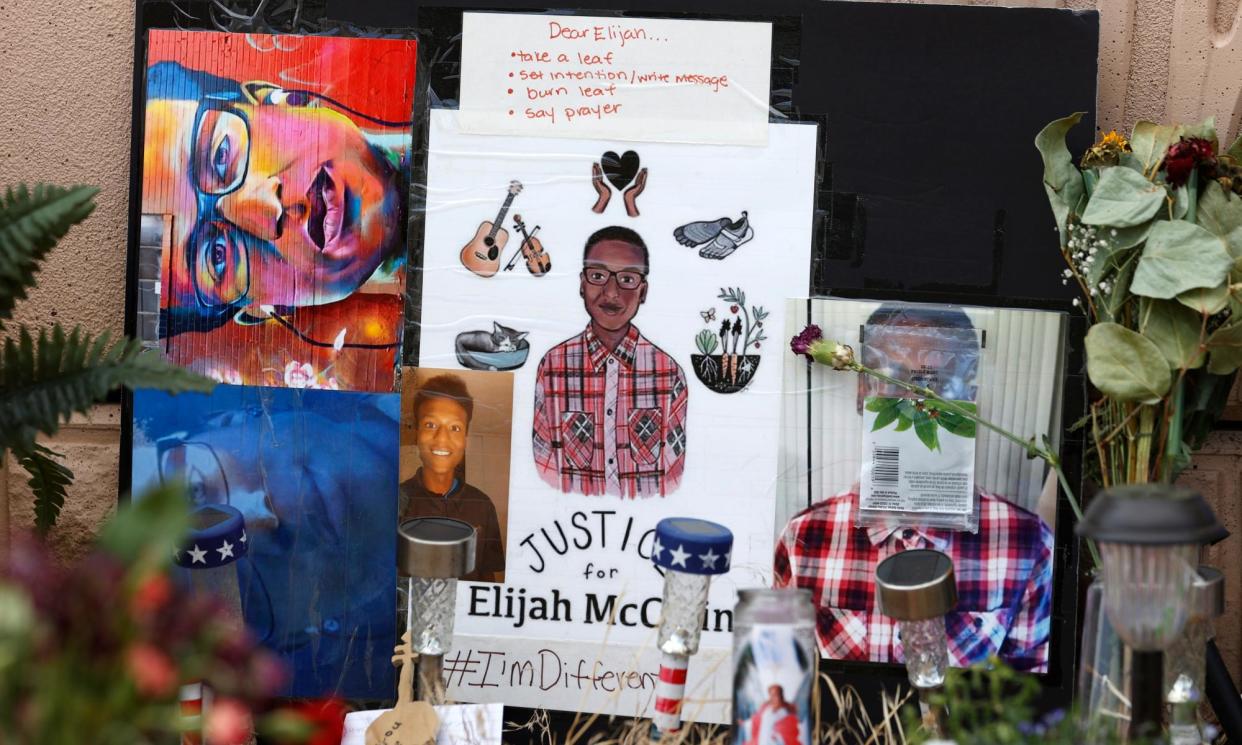‘They felt no need to stop the brutality’: Colorado paramedic gets five-year prison term for killing Elijah McClain

A former Colorado paramedic has been sentenced to five years in prison in the 2019 killing of Elijah McClain after he was stopped by Aurora police.
Peter Cichuniec was one of two paramedics convicted of criminally negligent homicide for their roles in the 23-year-old’s death, which sparked years of protests and changes in the law. A jury also found Cichuniec guilty of second-degree assault. The outcome marks an extremely rare instance of a paramedic being found criminally liable and facing a prison sentence for a death in police custody.
Cichuniec was facing a sentence of five to 16 years for the assault charge. The judge on Friday also issued a one-year sentence for the homicide count for him to serve at the same time.
Colorado prosecutors filed charges against Cichuniec, paramedic Jeremy Cooper and three police officers, with cases that dragged on for years. Cichuniec and Cooper were responsible for injecting McClain with a dangerous dose of ketamine, a powerful sedative, as officers held him down.
“Should there have been a better medical assessment of Elijah McClain prior to the administration of ketamine? The answer is simply yes,” the judge, Mark Warner, said before issuing his sentence. He added: “The court does not find [Cichuniec] is an ongoing risk to the public.”
On 24 August 2019, McClain, a massage therapist, was walking home from the store listening to music on his headphones when a passing driver called 911 to report a “sketchy” person who “might be a good person or a bad person”. The caller noted he did not see any weapons and did not believe anyone was in danger.
Nathan Woodyard, the first officer to stop McClain, was immediately aggressive and grabbed him, saying he was “being suspicious”. Two other officers, Randy Roedema and Jason Rosenblatt, soon arrived and tackled McClain to the ground, placing him in a neck hold and putting their body weight on him, causing him to go in and out of consciousness.
McClain, an animal lover who had taught himself violin, apologized, repeatedly said, “I can’t breathe” and also said, “I’m an introvert … Why are you attacking me? I don’t even kill flies.”
Cichuniec ordered ketamine from the ambulance and Cooper injected McClain with 500mg, even though 325mg would have been the appropriate dose for someone of his weight, prosecutors said.
McClain showed signs of overdose following the dosage and never awoke.
A review of the case solicited by the Aurora city council found that McClain had committed no crime and police had no legal basis to stop him or to use force against him.
Sheneen McClain, who sat through three lengthy trials, told the court Friday that the paramedics were “accomplices to my son’s murder” and should have cared for her son as a patient and tried to help him.
“They want to blame their inhuman actions on their inhuman training, but reality is that they could have done something simply by just saying, ‘Stop hurting my patient.’ Instead, they chose to make the situation worse for my son and implicated themselves ... They felt no need to stop the brutality that was happening to my son as he pleaded for his life.”
She said she had repeatedly watched body-camera footage to try to understand why the paramedics “did not save him”. “Elijah was unconscious for an extended amount of time when he was held down and injected with ketamine, which made sure he did not wake up.”
Before the sentencing, the former paramedic’s relatives pleaded for mercy and Cichuniec spoke at length, criticizing prosecutors for saying he showed no remorse: “Every patient is important to me and my crew, no matter what.” But he continued to defend his actions that night, saying he had to make a “split-second decision”. Addressing Sheneen McClain, he said, “I am truly sorry for the loss of her son’s life. And I wish more than anything that we had a better outcome that night.”
Rosenblatt and Woodyard were acquitted in their trials. Woodyard was reinstated to the force in November and received more than $400,000 in back wages and other payments from the city, then resigned in January. Roedema, convicted of criminally negligent homicide, was sentenced to 14 months. Cooper’s sentencing is scheduled for April.

 Yahoo News
Yahoo News 
